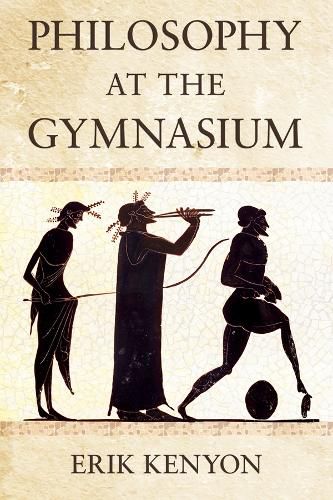Readings Newsletter
Become a Readings Member to make your shopping experience even easier.
Sign in or sign up for free!
You’re not far away from qualifying for FREE standard shipping within Australia
You’ve qualified for FREE standard shipping within Australia
The cart is loading…






Philosophy at the Gymnasium returns Greek moral philosophy to its original context-the gyms of Athens-to understand how training for the body sparked training for the mind. The result is an engaging inroad to Greek thought that wrestles with big questions about life, happiness, and education, while providing fresh perspectives on standing scholarly debates.
In Philosophy at the Gymnasium, Erik Kenyon reveals the egalitarian spirit of the ancient gym, in which clothes-and with them, social markers-are shed at the door, leaving individuals to compete based on their physical and intellectual merits alone. The work opens with Socratic dialogues set in gyms that call for reform in character education. It explores Plato's moral and political philosophy through the lens of mental and civic health. And it holds up Olympic victors as Aristotle's model for the life of happiness through training.
$9.00 standard shipping within Australia
FREE standard shipping within Australia for orders over $100.00
Express & International shipping calculated at checkout
Philosophy at the Gymnasium returns Greek moral philosophy to its original context-the gyms of Athens-to understand how training for the body sparked training for the mind. The result is an engaging inroad to Greek thought that wrestles with big questions about life, happiness, and education, while providing fresh perspectives on standing scholarly debates.
In Philosophy at the Gymnasium, Erik Kenyon reveals the egalitarian spirit of the ancient gym, in which clothes-and with them, social markers-are shed at the door, leaving individuals to compete based on their physical and intellectual merits alone. The work opens with Socratic dialogues set in gyms that call for reform in character education. It explores Plato's moral and political philosophy through the lens of mental and civic health. And it holds up Olympic victors as Aristotle's model for the life of happiness through training.